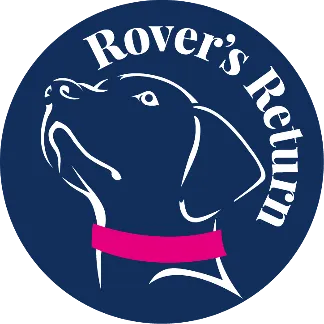Book a FREE 1:1 Assessment Call By Clicking HERE
Specialising In Dog Reactive Behviour
Accredited by APDT, ABTC and UK DOG Behaviour and Training Charter
Qualified and Experienced
Force Free Trainer and Behaviourist
Dog Training Leicestershire Educational Blogs

I’m Pregnant And My Dog Is Acting Weird: Helping Your Dog Adjust to Pregnancy
I’m Pregnant And My Dog Is Acting Weird: Helping Your Dog Adjust to Pregnancy

Congratulations, you're expecting! This is an incredibly exciting time, filled with anticipation, nursery planning, and perhaps a craving or two for something pickled. But amidst all the joy, have you stopped to consider how your four-legged family member might be experiencing this big life change?

How Early Do Dogs Sense Pregnancy?
It's not uncommon for dogs to pick up on the subtle shifts that come with pregnancy – long before a baby makes their grand appearance. As your body changes and your routine adapts, your dog might start exhibiting some new or intensified behaviours. Here in Leicestershire, as in homes everywhere, these changes can sometimes be a little puzzling for expectant parents.
Why Does My Dog's Behaviour Change During Pregnancy?
Dogs are incredibly perceptive. Here's what might be influencing your canine companion:
Scent Changes: Your body's hormones are in overdrive, and your unique scent profile is changing significantly. Your dog, with their incredible nose, will definitely notice this. For some, it might be fascinating; for others, a little unsettling.
Behavioural Shifts: You might be more tired, moving differently, or feeling nauseous. These changes in your energy levels and physical interactions can be confusing for a dog used to a consistent routine.
Routine Adjustments: As pregnancy progresses, walks might shorten, playtime might become less vigorous, or your sleep schedule could shift. Dogs thrive on routine, so any disruption can lead to anxiety or frustration.
Emotional Contagion: Dogs are experts at reading our emotions. If you're feeling more stressed, anxious, or even just more protective, your dog can pick up on these cues and reflect them in their own behaviour.
Anticipation of Change: Even if they don't consciously understand "baby," dogs are masters of predicting future events based on patterns. New furniture, baby smells, or changes in how rooms are used can all signal that something big is coming.
Do Dogs Act Differently When The Owner Is Pregnant?
Common Behavioural Changes You Might See:
Increased Clinginess/Anxiety: Your dog might become more velcro-like, following you everywhere, seeking more attention, or even displaying separation anxiety when you leave the room.
Protective Behaviour: Some dogs become more protective of their pregnant owner, growling at strangers or becoming more territorial.
Nesting Instincts: Interestingly, some dogs might start exhibiting their own "nesting" behaviours, gathering toys, or seeking out quiet spots.
Urination/Defecation in the House: This can be a sign of stress or anxiety, particularly if your dog is otherwise house-trained.
Increased Barking/Attention-Seeking: Frustration or a desire for reassurance can manifest as increased vocalisation or demanding attention.
Aggression: In rare cases, if a dog is already prone to anxiety or resource guarding, the changes can exacerbate these issues, potentially leading to aggression.
How Can You Help Your Dog Adjust?
The key is proactive, positive preparation.
Maintain Routine (Where Possible): Consistency is calming for dogs. Try to keep feeding times, walk schedules, and playtime as regular as possible. If changes are inevitable, introduce them gradually.
Positive Reinforcement for Calmness: Reward your dog for calm behaviour, especially when they are relaxing near you or settling on their bed.
Start "Baby-Related" Positive Associations: Introduce baby smells (lotions, powders) and sounds (baby cries played softly) now, pairing them with treats and praise. This creates positive associations before the baby arrives.
Practice Boundaries: If your dog won't be allowed on certain furniture or in specific rooms once the baby is here, start gently enforcing those boundaries now, using positive reinforcement.
Address Nipping/Jumping Now: Any unwanted behaviours that might be an issue with a baby should be addressed and redirected before the baby arrives. Work on "off" commands and reinforcing all-four-on-the-floor greetings.
"Place" or "Settle" Training: Teach your dog a strong "place" command, so they have a designated, calm spot to go to when you need them out of the way or when the baby is present.
Increase Mental Stimulation: If physical exercise needs to decrease due to your pregnancy, compensate with more mental enrichment. Puzzle toys, chew bones, and short training sessions can help keep their minds active and reduce boredom-related behaviours.
Consult a Professional: If you're seeing significant behavioural changes, or if you have any concerns about potential aggression, don't hesitate to contact a certified professional dog trainer or veterinary behaviourist. They can provide tailored advice and support. We have some fantastic trainers here in Northamptonshire who can offer guidance!
Spend Quality Time: Even if playtime is less energetic, ensure you're still dedicating quality, calm time to your dog – gentle petting, quiet cuddles, or a short, focused training session. Reassurance that they are still loved and secure is vital.
You may have questions such as
Is it okay to have a dog while pregnant?
Can a pregnant woman be near dogs?
The answer is yes! It is perfectly safe to be pregnant and raise children with dogs. Some dogs struggle and need time, patience and understanding whilst going through changes.
Your dog is a beloved member of your family, and with a little understanding and proactive training, you can help them navigate the exciting journey of welcoming a new baby into your Northampton home. It's all about thoughtful preparation and continuing to make them feel loved and secure.
Highly Qualified Behaviourist
Accredited by APDT, ABTC and UK DOG Behaviour and Training Charter
Accredited Scentwork Instructor
Force Free Trainer and Behaviour
Force Free Trainer and Behaviour
Accredited Scentwork Instructor
Accredited by APDT, ABTC and UK DOG Behaviour and Training Charter
Highly Qualified Behaviourist
Contact Us
Sam: 07725 802995
You can contact us via Live Chat button at the bottom of the screen or the contact box to the right.
You can also book one of our services online using the View Dates buttons under the service you require.
© 2023 by Rovers Return Dog Trainers Academy - Force Free Dog Training Lutterworth, Broughton Astley, Leicestershire, Hinckley, Nuneaton, Stoney Stanton, South Kilworth, Ullesthorpe
Privacy Policy | Terms and Conditions | Terms and Conditions of Services | Sitemap

Facebook
Instagram
X
LinkedIn
Youtube
TikTok